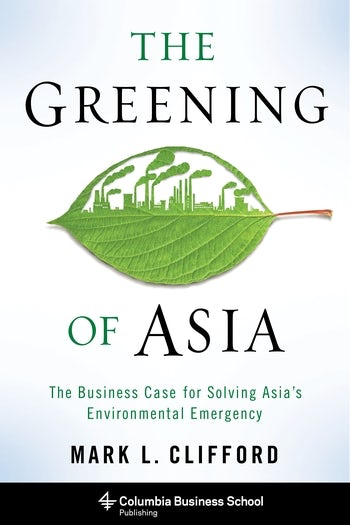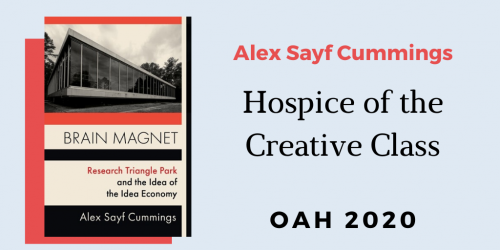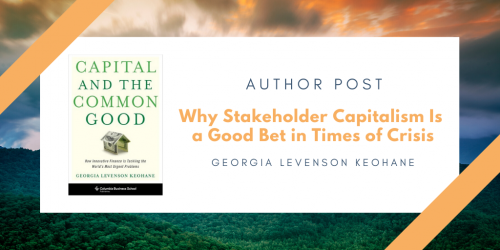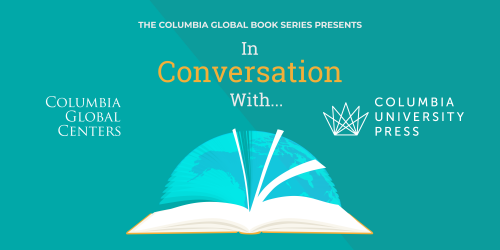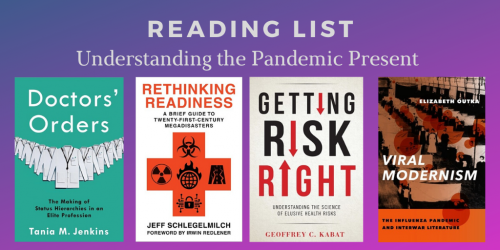Postpandemic Hopes
By Michael Symons

“As an academic economist and former chef, this is a book I wish I had written. Symons’s work provides a unique contribution through its fusion of philosophy, economics, and food, arguing for the need to reject the acquisitive self-interest ethos of economics and instead return to a social-centric Epicurean philosophy. I for one would enjoy a seat at Symons’s table.”
~Ted P. Schmidt, author of The Political Economy of Food and Finance
This week’s featured title is of Meals Matter: A Radical Economics Through Gastronomy. As a result of the COVID-19 pandemic, many households have had to adapt their eating and cooking habits to the new world of social distancing. In today’s guest post, Symons reflects on these changes and his hopes for the postpandemic future.
Remember to enter this week’s drawing for a chance to win a copy of the book!
• • • • • •
Pandemic survivors will emerge into a profoundly changed world with more social media and online shopping, less commuting, the collapse of cash, improved health care, emptier cities, increased authoritarianism, globalism, nationalism… among any number of often contradictory early predictions.
His presidential aspirations abandoned, Senator Bernie Sanders declared, “many in our country are now beginning to rethink the basic assumptions underlying the American value system.”
“Decisions about dinner have for too long been written off as trivial and self-indulgent. I respond: when did human sustenance stop being fundamental?”
Weighty policy decisions have to be made, elections fought, gross inequality alleviated, taxes revamped, and budgets revived. The struggles entailed in finding the “new normal” might seem far too big and important for gastronomy. But decisions about dinner have for too long been written off as trivial and self-indulgent. I respond: when did human sustenance stop being fundamental?
Gastronomy could, and should, help as urgently as possible even where it might seem least equipped—the philosophical essentials, those “basic assumptions.” For me, gastronomy as the “diner’s sense of the world” is unparalleled for understanding liberal concepts of freedom, equality, democracy, family life, environmental care, political action, and more.
The supreme science, as Jean Anthelme Brillat-Savarin saw it, has lain largely undeveloped since he published Physiology of Taste in 1826. I suspect that gastronomy was belittled precisely because its radicalism was so compelling.
“I suspect that gastronomy was belittled precisely because its radicalism was so compelling.”
My new book, Meals Matter: A Radical Economics Through Gastronomy, charts how capitalism’s apologists, especially economists, upended political philosophy. Since the early nineteenth century, they have distorted socially aware Enlightenment liberalism into varieties of free enterprise and neoliberalism, which accord liberty to money.
Meals Matter shows economists proclaiming money’s unbreakable laws while trivializing eating and drinking. Commodity production, food processing, trade, and hospitality might rate financially as industries, but economists sidelined actual meal-sharing as “utility,” “externality,” “irrational,” “domestic work,” and “leisure.” Casting appetite aside, economists favored greed.
Such founding liberals as Thomas Hobbes, John Locke, and Jean-Jacques Rousseau based their arguments on each person’s natural right to self-preservation, which meant attending to the “pleasure of the stomach,” to quote the then influential ancient philosopher Epicurus. The natural right became a social one, once individuals accepted that their best interests actually lay in collaboration.
Even the economists’ hero, Adam Smith, stressed that “we expect our dinner” through the “co-operation and assistance of great multitudes,” including the butcher, brewer, and baker (my emphasis).
In drafting the U.S. Declaration of Independence, meal-lover and Epicurean Thomas Jefferson enshrined equal rights to life, liberty, and the pursuit of happiness. The equivalent French trio became liberty, equality, and conviviality (my translation of fraternité).
“Even the economists’ hero, Adam Smith, stressed that “we expect our dinner” through the “co-operation and assistance of great multitudes,” including the butcher, brewer, and baker (my emphasis).”
Under capitalism, laissez-faire apologists so abstracted the concept of liberty from its gastronomic base that it could apply to profit-seeking corporations. Their legal and political “personhood” overlooked the undeniable fact that firms do not eat, let alone gain happiness by sharing with others.
Among key correctives, Meals Matter proposes that we stop speaking of a single “the economy,” when we rely on several: not just the market but also the original, domestic economy and the political economy. As well as exposing the vacuity of “greed is good” bluster, the pandemic has returned responsibilities from the market economy toward home life and government. COVID-19 reminds us that human beings thrive, and suffer, together, and within a further, natural economy, too.
Are political leaders likely to become more sympathetic to gastronomy? Could many soon agree with Meals Matter that real social benefits accrue from the thoughtful application of the ancient principle, “eat, drink, and be merry”?
“Many people have reawakened under lockdown to balcony gardening, home baking and preserving, and domestic meal-sharing.”
Tyrants will continue to appeal to higher authorities, whether religious, nativist, or moneyed, and even liberal politicians are likely to remain wary of mundane sensual pleasures. On the other hand, the liveliness of foodies, food activists, reborn farmers, and socially committed restaurateurs in recent years makes me more optimistic. Many people have reawakened under lockdown to balcony gardening, home baking and preserving, and domestic meal-sharing.
I also take hope that serious scholars have given up the old academic disdain for eating and drinking. My book’s four endorsers represent a gratifying spread of expertise—professors of politics, political economy, anthropology of food, and European history have, between them, detected “the potential to upend many orthodoxies” and “a passionate call to create a more convivial world.”

